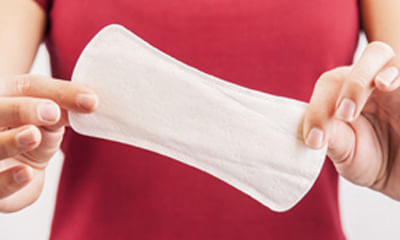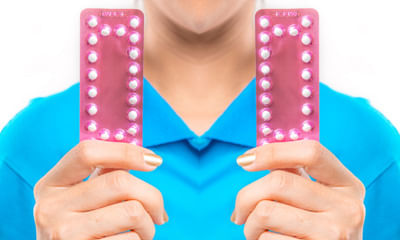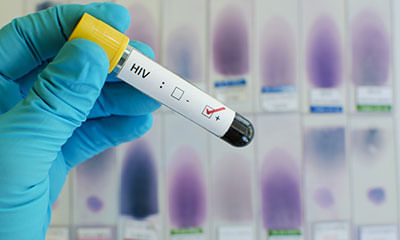Is Bleeding After Anal Sex Normal
I had unsafe gay oral sex many times and one-time anal sex without a condom. I don't know the last correct exposure date ...
Ask Free Question
Cost differs from center to center. Hiv-4th generation test which tests both antibodies and p24 antigen. After 4 months of last exposure if negative is reasonably reliable list of sexually transmitted diseases- •hiv/aids, hepatitis, chancroid, trichomoniasis, human papillomavirus (hpv) and genital warts, herpes, gonorrhea, chlamydia, bacterial vaginosis, syphilis, molluscum contagiosum, lymphogranuloma venereium (lgv) best is meet dermato-venereologist and ask which tests should be done. He will after history do examination and decide.
It's possible to have blood during poop even he never try anal sex? Almost a year he have blood during poop? ...
Ask Free Question
Hello- Bleeding from any body part is not normal. You don't require anal to expect blood in poop. Condition like Piles, fissure, ulcerative colitis etc can cause blood in poop and should be treated immediately to avoid further complications.
Hi, I had one sexual encounter which was mainly oral sex, anal penetration wasn’t successful as I was the insertive part ...
Ask Free Question
Dear user. Thanks for the question. Hiv spread through contact between broken skin, wounds, or mucous membranes and hiv-infected blood or blood-contaminated body fluids. Deep, open-mouth kissing if both partners have sores or bleeding gums and blood from the hiv-positive partner gets into the bloodstream of the hiv-negative partner. Hiv can not spread through saliva. Take care.
At the 4 day of period of my GF we do sex with out protection. So I am inquiring is she get pregnant. ...
Ask Free Question
If you’ve had sex without a condom or a sexual experience where the condom broke, try not to panic. Things happen, and you’re far from the only person to go through either of these experiences. What you do need to remember, though, is that there are a few risks associated with these sexual events. But there are plenty of steps you can take to address those risks so that you remain protected and sexually healthy. What to do if you’ve been sexually assaulted if you’re able to, leave any situation that makes you feel unsafe and call your local emergency services if you’re in danger. Seek medical care if necessary, and reach out to the national sexual assault hotline or loveisrespect for support and guidance on what to do next. If you’re looking for more information, our sexual assault resource guide can help. Immediately after if you notice that the condom broke, stop any sexual activity and move away from your partner. If you’ve had sex without a condom, remember that there are a few things you can do immediately to help. Use the bathroom first, head to the bathroom to remove lingering fluids from the vagina, penis, or anus. This can make you feel more comfortable and help remove bacteria that could result in urinary tract infections (utis). You can sit on the toilet and push down with your genital or anal muscles to push out any remaining fluid. Peeing can also help. Just know that if you have a vulva and have had penis-in-vagina sex, peeing won’t remove the risk of pregnancy. That’s because sperm has already traveled toward the egg. Don’t douche, but do wash up it’s a myth that genital areas need a thorough cleanse after sexual activity. While washing and drying genital areas can further increase your comfort, vaginal or anal douching can actually put you at increased risk of an infection. This is because douching products can cause irritation and inflammation. So if you want to wash, simply have a shower or use lukewarm water to splash the area. Check in with yourself make sure you take time to ask yourself how you’re feeling. It’s normal to experience a wide range of emotions after sex without a condom, whether that’s worry, anger, or sadness. Try to speak to friends or family about the situation so that they can support you. If you aren’t comfortable speaking to anyone you know, consider reaching out to planned parenthood or the national coalition for sexual health for help. Plan out your next steps once you’re feeling more comfortable, it’s a good idea to think about what to do next. If you need emergency contraception (ec), have a look at where your nearest pharmacy is and its opening times. Some forms of ec are available are over-the-counter and don’t require a doctor’s prescription. If you’re concerned that you may have been exposed to a sexually transmitted infection (sti) or hiv, book an appointment with a doctor or sexual health clinic. Remember that you only need to have oral or penetrative sex with someone once to contract an sti. Watch for symptoms while some stis can be symptomless, others may show up in the form of sores, itchiness, smelly discharge, or pain when urinating. Keep an eye on your genitals, anus, and mouth area, and schedule an sti test if you notice anything unusual.
I am 17, And my boyfriend simply inserted penis into my anal we did not have anal sex, When he did it before it was litt ...
Ask Free Question
Hemorrhoids — Hemorrhoids are swollen blood vessels in the rectum or anus that can be painful, itchy, and can sometimes bleed (figure 1)..Anal fissures can cause bleeding and a sensation of tearing, ripping, or burning during or after a bowel movement.
I have anal sex for the first time today and since I'm Having pain and a little bit bleeding, so is it normal? And pleas ...
Ask Free Question
Hello Anus is not meant for sex so it is not lubricated enough, which causes pain and even bleeding due to friction. You need to take rest to let the area heal. You can apply warm castor oil dipped in cotton and can apply into the anus to reduce the pain and inflammation.
I have a very bad smell in semen, is it normal, or indication of something wrong. ...
Ask Free Question
Fishy, rotten, or foul-smelling semen isn't normal. If the smell persists, it could be a sign of a sexually transmitted infection (STI) or other underlying condition, such as: Trichomoniasis. This bacterial infection can cause itching and burning, as well as smelly penile discharge.
Hi. For about a month or two. I've been worried if I am pregnant because I read a lot of theories online about how vagin ...
Ask Free Question
Anal sex doesn't cause pregnancy. Ever. Neither oral sex or other types. Vaginal sex is the only way. And other than that IVF and IUI.
Sir I am diagnosed with proctitis but my anca ifG and asca igA blood test are normal and stool faecal prolactin test are ...
Ask Free Question
Proctitis is inflammation of the lining of the rectum. The rectum is a muscular tube that's connected to the end of your colon. Stool passes through the rectum on its way out of the body. Several diseases and conditions can cause inflammation of the rectal lining. They include Inflammatory bowel disease. Infections Radiation therapy for cancer Antibiotics. Diversion proctitis Food protein-induced proctitis. Eosinophilic proctitis Risk factors Risk factors for proctitis include: Unsafe sex. Practices that increase your risk of a sexually transmitted infection (STI) can increase your risk of proctitis. Your risk of contracting an STI increases if you have multiple sex partners, don't use condoms and have sex with a partner who has an STI. Inflammatory bowel diseases. Having an inflammatory bowel disease (Crohn's disease or ulcerative colitis) increases your risk of proctitis. Radiation therapy for cancer. Radiation therapy directed at or near your rectum (such as for rectal, ovarian or prostate cancer) increases your risk of proctitis. Anti-Saccharomyces cerevisiae antibodies (ASCA) are immune proteins that are frequently present in people who have inflammatory bowel disease (IBD). This test detects ASCA in the blood. The test for anti-Saccharomyces cerevisiae antibodies (ASCA) is used to help distinguish between Crohn disease (CD) and ulcerative colitis (UC), the two most common types of inflammatory bowel disease (IBD). Testing usually includes detecting two different classes of ASCA in the blood, IgG and IgA. A positive ASCA result is not diagnostic of CD, UC, or of an IBD, but it does make it more likely that a person with symptoms has an IBD. Results of ASCA testing are often interpreted in conjunction with the results of pANCA testing: If ASCA is positive and pANCA is negative, then it is likely that the person has CD. If ASCA is negative and pANCA is positive, then it is likely that the person has UC. A negative result for ASCA and pANCA does necessarily rule out IBD. A person who is negative may still have CD, UC, or another IBD. The presence of multiple antibodies (ASCA, anti-CBir1, anti-Omp C) may indicate the likelihood of a more aggressive disease, but negative results do not rule out aggressive disease.
Hi, No with massage HIV cannot spread and for it sex is needed with an infected person (not with all women or men who ar ...
Ask Free Question
Unprotected vaginal or anal sex puts you at risk of HIV and other sexually transmitted infections (STIs). During unprotected sex, HIV can be transmitted via the bodily fluids of an infected person (blood, semen, vaginal fluid, pre-cum or anal mucus) to their sexual partner. There is higher risk of HIV infection during anal sex because the lining of the anus is more delicate than the lining of the vagina and is more easily damaged, providing entry points for HIV. The risk of HIV transmission during unprotected oral sex is very low, but there is a risk of other STIs. Using condoms is the most effective way to prevent HIV and STI transmission.








